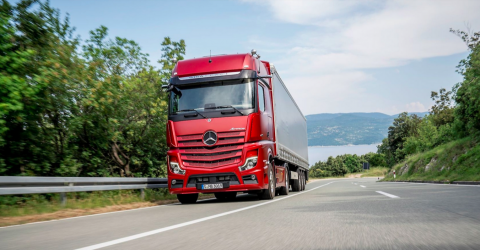Freight, Logistics and Warehousing
Brave New World Of Trade Terms
Incoterms are the standardised International Commercial Terms that lay down the ground rules for freight transactions between buyer and seller. One of the key changes to Incoterms 2020 concerns FCA (Free Carrier), which allows for bills of lading to be issued after loading.
“This allows buyers and sellers to specify that FCA will deliver to a container terminal and that the buyer will instruct his carrier to issue a bill of lading to the seller,” says Megan Roper, VP Marketing, DHL Express Sub-Saharan Africa.
Another significant change comes with the renaming of DAT (Delivered at Terminal) to Delivered at Place Unloaded (DPU), which states that the destination can be any place and does not have to be a terminal. “This is the only Incoterm mandating that the seller is responsible for unloading at the stated place of delivery,” adds Roper.
Safety and security
The latest changes have made provision for the inclusion of more prominent security-related requirements such as mandatory “container scanning”, and there has also been a significant change in the different levels of insurance cover for CIP (Carriage & Insurance Paid To), although the specific insurance terms remain a negotiating point between buyer and seller.
“In contrast to Incoterms 2010, the minimum insurance coverage against certain loss events and the default insurance requirement under CIP has moved to more comprehensive ‘all risks’ coverage as default insurance coverage Institute Cargo Clause A or equivalent,” says Roper.
“A big lesson I have learned is to align my insurance with the Incoterms,” says Cape Town-based Michael Valstorp, director of Piffany Copenhagen. His company works with manufacturing partners in South Africa, Denmark, Taiwan and Vietnam, with the finished products exported globally to distributors and retailers. “Usually it’s the seller defining the terms, but if the buyer is big or powerful enough they could demand a specific term,” adds Valstorp
Costs and carriage
The 2020 iteration of Incoterms has also made provision for a far clearer detailing of costs and their positioning within the regulations. “Where listed, cost allocation between buyer and seller is stated more precisely, and the 2020 rules now list all cost elements, so that the user can find a compact, continuous cost statement in a clear overview,” says Roper. “Incoterms 2010 did not take into account any own transportation by the seller or the buyer, but 2020 enables the seller or buyer’s own transport by including arrangements for carriage with own means of transport in FCA, DPU, Delivered at Place (DAP) and Delivered Duty Paid (DDP).”
Reducing your risk
Incoterms have far greater ramifications than your bottom line, as they have a direct bearing on the determination of import duties and VAT in the country of import.
“If you don’t have clear evidence of costs such as insurance and freight it is best not to deduct those costs, because if the regulator audits you they may be of the view that you have reduced the price paid or payable,” says a senior customs and global trade advisory manager at a Johannesburg-based international consulting firm. “If you are deemed to have deducted costs unjustly without proof of such costs, you may expose yourself to a potential underpayment of dues. This can hit you a few years down the line,” he cautions.






 Sign-up and receive the Business Media MAGS newsletter OR SA Mining newsletter straight to your inbox.
Sign-up and receive the Business Media MAGS newsletter OR SA Mining newsletter straight to your inbox.